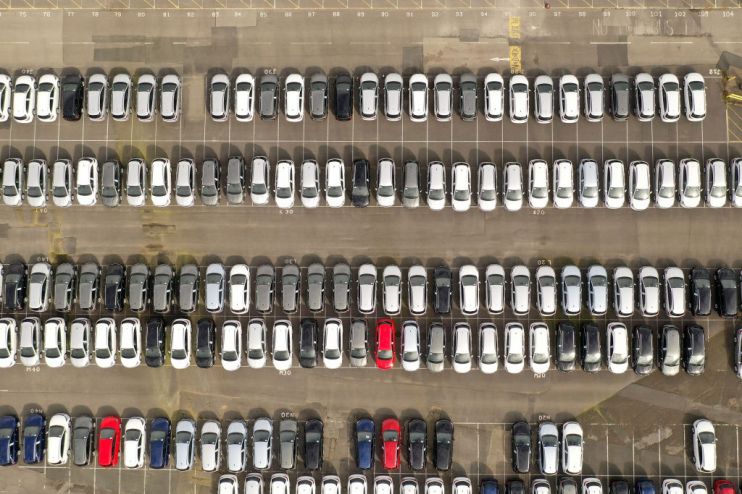UK car output worst since 1956 but EVs and investment brighten 2022 outlook

2021 was a dismal year for the UK automotive industry, as output fell 6.7 per cent to less than 860,000 units – the lowest since 1956.
Figures released today by the Society of Motor Manufacturers and Traders (SMMT) reported that production went down 34 per cent on pre-pandemic levels, especially as a result of the pandemic and supply chain issues such as the semiconductor shortage.
“The biggest single cause of this is semiconductors, as the average car takes between 1,500 and 3,000 chips. That was the most impactful issue” said SMMT’s chief executive Mike Hawes. “It did mask other component shortages, with some units still arising from shortages related to Covid and its impact on logistics.”
The closure of Honda’s Swindon factory in July also contributed to the bleak year, bringing down numbers by a quarter.
According to Hawes, despite the situation, increasing investments in the industry and the ongoing electrification process are brightening this year’s outlook, with forecasts expecting production to go back to one million units in 2022.
Probably the highest since 2013, investment levels reached £4.9bn in 2021 and focused on the EV transition, including the West Midlands’ battery gigafactory.
“One in 12 cars made in Britain last year was pure electric and that is about 72 per cent up, while hybrid and plug-ins took a record share accounting for about 17.9 per cent of [all manufactured vehicles,” he added.
Investment also derived from automotive giants such as Ford, Aston Martin and Nissan, which recently put £1bn into the UK’s electric car expansion.
While semiconductor issues are expected to ease by the second half of this year, the rising energy and living costs have the potential to become the industry’s main issue, said Hawes.
“Energy is the most immediate and pressing one, because you can see what’s coming down the line in terms of price increases,” Hawes said. “Significant input costs and energy will potentially go up 50, 60, 70 per cent and that will have a bearing.”
Commenting on the SMMT data, KPMG’s head of automotive Richard Peberdy argued that demand will not slow down, despite the circumstances.
“In normal times, an increasing cost of living would threaten consumer demand, but given demand for both new and used vehicles is still outpacing supply, consumer appetite remains relatively strong,” he said.